NEW BLOG ADDRESS
We have a NEW BLOG ADDRESS
to see it go to:
www.luzadertravels.blogspot.com
for the lastest from Africa
This blog still has all the photos, stories and work done in
INDIA
VIETNAM
NEW ZEALAND
AUSTRALIA
THAILAND
Brian and Brenda will be traveling for two years abroad. Check this site for updates, stories and photos from their travels and volunteer adventures. NEW Travel blogsite address 2007-2008 is www.luzadertravels.blogspot.com
We have a NEW BLOG ADDRESS
Happy Thanksgiving
Life on the road has required an incredible amount of learning, and adapting. We would like to thank all our friends and family at home for their moral support and encouragement along the way. Thanks also to our newest friends for their guidance and companionship through some of the loneliest and difficult times.
This challenging lifestyle has taught us to be gracious and ever thankful for the birthright that has given us the opportunity to choose our own fate. We have never felt more grateful, for being from a developed county and even feeling a bit more patriotic this week.
The last few months have taught us to appreciate every little thing that comes our way. We are especially thankful for flushing potty's, random electricity, affordable public transportation and fertile land to grow food. We are thankful for our health and energy to endure the task we have chosen. But all the practical things aside, we really appreciate You We hang onto every word of your love and friendship. Your support keeps us propped up.
From the men, women and children who have benefited from your generosity, we extend a Big "THANK YOU"
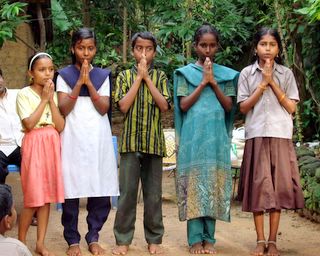
Thank you Project Financers 2006:
Brenda & Brian Luzader- Portland, Oregon
Dale/Bloome Family & www.bungee.com staff -Portland Oregon
Nancy Stone & Wayde Spielberg- Portland, Oregon
Norma Soshea (& recently passed Bob Soshea) - Camarillo, California
Nannette Miller- Beavercreek, Oregon
Molly McCall & Dan Hanches - Scappoose, Oregon
Francine and Mark- Southern California
Mike Tangeman- Seattle, Washington
Kaysoon Brown- Mumbai, India
Craig Martin and Craig's friends & relatives- Cairns, Australia
The Travelling Holland Girls- Holland
Fourth of July & anonymous donors- Oregon/Washington
VIETNAM
Government Orphanange
Project:Nutrition Supplements/School Uniforms ($135usd)
Caregiving Books/Magazines/Food ($54usd)
.
Handicapped Children of Government Orphanage
Project: Funding for Physiotherapists/ Nutritional Supplements ($900usd)
Cahors Street Children Orphanage
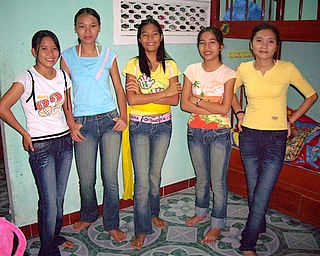 Project: Clothes/ Books/ Food/Outings ($150usd)
Project: Clothes/ Books/ Food/Outings ($150usd)
INDIA
Projects: BGM Sewing Machines ($150usd)
Food Contribution/After School Tuition
BGM Cow & Goat Distribution (ongoing project $650 AUD)
Mitraniketan Goat Distribution ($85 usd)
BGM Well Construction ($225usd)
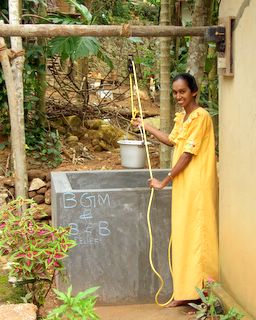

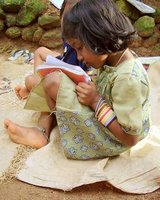
AFRICA 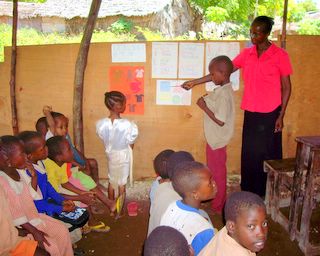 Project (to start): Build School-Amani Education Project($1500 usd)
Project (to start): Build School-Amani Education Project($1500 usd)
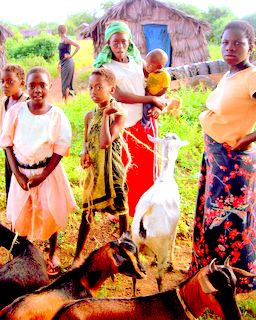 Project: Goat Distribution for Maweni Village ($345AUD)
Project: Goat Distribution for Maweni Village ($345AUD)
Project: Shoes for the children ($150 usd)
In case you didn't know..About B&B Relief:
B&B Relief was established by the friends and family of Brian and Brenda Luzader after the 2004 Tsunami. In order to get relief to victims quickly and eliminate the administrative costs, Brian and Brenda volunteered to take the donations directly to the survivors. The projects and people who received funding or assistance were photographed, documented and recorded. In this way, each donor was able to see who benefited from their contribution and stay in contact if they chose. This idea has grown into a small relief organization that has spread around the world.
Brian and Brenda do not accept donations for their travel or living expenses and all administrative, transportation and distribution work, is done voluntarily. It has become their volunteer job to find deserving people and projects to assist with, while they are travelling around the world. Projects are evaluated and then accepted, based on assessed needs and the contributors wishes.
Donations are accepted from all counties. Bi-annual reports are made for the contributors. Receipts are kept on record for inspection. All funding and distribution of currency, is considered public record and available upon request. B&B Relief is not a registered charity; it is just two people who have the energy and means to deliver support directly to the most disadvantaged people in the world. 100% of donations go to the recipients.
If you would like to participate in a project or have comments to share, please contact Brian and Brenda.
 The thin line between love and hate
The thin line between love and hate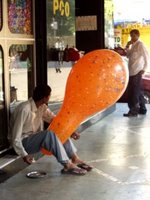
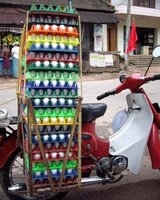 It's a dangerous, but common occurrence to see a family of 5 (or six if there is an infant) balancing without helmets on a single motorbike. A hard sight to witness, but we've seen too many busses slam into a motorbike, then slow down enough to see if the sprawling person moves on the ground. After movement is observed the bus speeds away, trying to keep on schedule.
It's a dangerous, but common occurrence to see a family of 5 (or six if there is an infant) balancing without helmets on a single motorbike. A hard sight to witness, but we've seen too many busses slam into a motorbike, then slow down enough to see if the sprawling person moves on the ground. After movement is observed the bus speeds away, trying to keep on schedule.


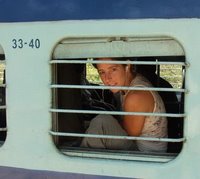
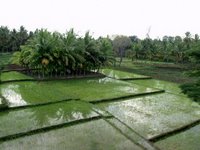

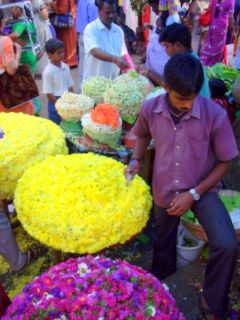 The fragrance that follows your nose is distinctively Indian. Large markets sell incense, spices, jasmine, curries, sandalwood and coconut oils. Within a few steps you can be emerged in the good, the bad, and the smelly. The nicest restaurant will invite you in with fresh chai and masala, but once inside you'll find the sound of patrons snorting and hocking their mucus up, while at the dining table.
The fragrance that follows your nose is distinctively Indian. Large markets sell incense, spices, jasmine, curries, sandalwood and coconut oils. Within a few steps you can be emerged in the good, the bad, and the smelly. The nicest restaurant will invite you in with fresh chai and masala, but once inside you'll find the sound of patrons snorting and hocking their mucus up, while at the dining table.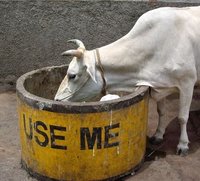 Step out, but proceed with caution through the lanes of spewing toxic unfiltered carbon monoxide that burns your nostrils and smothers your lungs. There is no such thing as a Department of Environmental Quality, but this country of over a billion commuters has its own DEQ. The Devour Energy Quickly policy is coating the cities with unchecked pollution and congestion.
Step out, but proceed with caution through the lanes of spewing toxic unfiltered carbon monoxide that burns your nostrils and smothers your lungs. There is no such thing as a Department of Environmental Quality, but this country of over a billion commuters has its own DEQ. The Devour Energy Quickly policy is coating the cities with unchecked pollution and congestion.
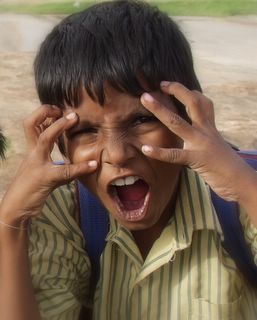
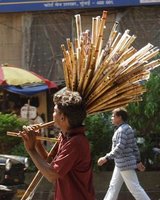
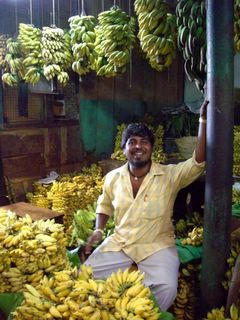

Labels: India